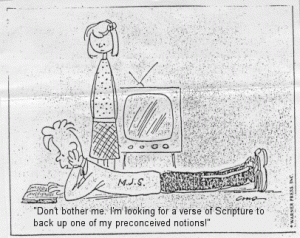
Shownotes
Welcome to Day 1559 of our Wisdom-Trek, and thank you for joining me.
This is Guthrie Chamberlain, Your Guide to Wisdom
Bible Study – Nonliterial Real Interpretations – Meditation Monday
Welcome to Wisdom-Trek with Gramps! Wisdom is the final frontier in gaining true knowledge. Our mission is to create a legacy of wisdom, seek out discernment and insights, and boldly grow where few have chosen to grow before. Hello, my friend; this is Gramps; thanks for coming along on our journey to increase Wisdom and Create a Living Legacy Today is Day 1559 of our Trek, and it is time for Meditation Monday. Taking time to relax, refocus, and reprioritize our lives is crucial in order to create a living legacy. For you, it may just be time alone for quiet reflection. You may utilize structured meditation practices. In my life, Meditation includes reading and reflecting on God’s Word and in prayer. It is a time to renew my mind, refocus on what is most important, and making sure that I am nurturing my soul, mind, and body. As you come along with me on our trek each Meditation Monday, it is my hope and prayer that you, too, will experience a time for reflection and renewing of your mind.
We are continuing our series this week on Meditation Monday as we focus on Mastering Bible Study through a series of brief insights from Hebrew Scholar, Dr. Michael S. Heiser. Our current insights are focusing on accurately interpreting the Bible. Today let us meditate on:
Bible Study – Nonliterial Real Interpretations
· Insight Fifty-Three: Nonliteral Doesn’t Mean “Not Real.”
I talked earlier about how “literal interpretation” isn’t easy to define. The whole idea of what “literal” interpretation means needs interpretation. The frequent insistence on thinking only in literal terms (whatever that means) has led to the caricature of other kinds of interpretation. Nonliteral interpretation, many are told, is just a strategy to avoid what the Bible clearly says. When something in the Bible threatens people (e.g., makes them draw a different conclusion than the one they favor), those panicked souls resort to “allegorizing” or “spiritualizing” the text. That’s nonsense.
I do not deny that people do come up with weird interpretations to avoid something they don’t like in Scripture. I deny that this is an acceptable portrayal of nonliteral interpretation. It had better be, since New Testament writers do at times take their Old Testament nonliterally.
The myth is that “nonliteral” somehow means “not real” or “I don’t want what I’m reading to be real.” The kind of nonliteral interpretation the New Testament writers sometimes engage in is hardly the result of wishing something in the Bible isn’t true.

The idea behind the kind of nonliteral interpretation you’ll find in the Bible is that sometimes the text’s meaning transcends what we would expect the passage to “literally” mean. The text means more than what immediately pops into our head. Nonliteral interpretation presumes that what God means by a statement might go beyond what humans presume. Since the spiritual realm is just as real as our physical, embodied existence, we have no right to make such presumptions. Nonliteral doesn’t mean not real. It often means more real than you imagined.
For example, there is a considerable debate over the nature of the Antichrist figure in the New Testament. Some say the Antichrist will be a man, perhaps the Devil incarnate. Others say that Antichrist is a symbol of evil. In both perspectives, believers’ suffering that ensues from the appearance of this man/evil is real. It would be dishonest for the “literal man” perspective to argue that the “symbol of evil” side wants to escape what the text says. Whatever the text means, the evil will be a clear and present danger.
Don’t embrace caricatures of interpretive approaches you don’t like or have little experience with. Find out what an approach really says.
· Insight Fifty-Four: Be Open to Nonliteral Inpertretation – the Biblical Writers Used It On Occasion

I just made the point that “nonliteral” doesn’t mean “not real.” When that interpretive approach happens in the New Testament, the meaning of a passage goes beyond a mundane “literal” expectation.
One of the more dramatic examples of a more-than-literal interpretation is what Luke does with Amos’s prophecy. In Amos 9:11-12, a prophecy about a time far distant to the prophet himself, God says through Amos:
“In that day I will restore the fallen house of David.
I will repair its damaged walls.
From the ruins, I will rebuild it
and restore its former glory.
And Israel will possess what is left of Edom
and all the nations I have called to be mine.”
The Lord has spoken,
and he will do these things.
On the surface—literally, one might say—the prophecy seems to be about repairing a physical structure, perhaps a damaged tent or a wall. This restoration’s purpose is that Israel may possess the remnant of Edom and all the nations called by God’s name. Given the history of Edom, one expects Israel is the one who will possess Edom. That creates the possibility that the fallen house of David may be metaphorical for David’s dynasty.
Luke doesn’t see any of that in Acts 15. In that chapter, Peter relates the vision God showed him about the message of salvation being for Gentiles, not Jews only. Right after that, when the apostle James hears about Paul’s new ministry to the Gentiles, he sees what God has accomplished through Peter and Paul as the fulfillment of Amos 9! Luke writes in Acts 15:15-17:
And this conversion of Gentiles is exactly what the prophets predicted. As it is written:
Afterward, I will return
and restore the fallen house of David.
I will rebuild its ruins
and restore it,
so that the rest of humanity might seek the Lord,
including the Gentiles—
all those I have called to be mine.
The Lord has spoken—
Luke (and James) don’t balk at accepting a dramatically abstracted interpretation (Edom becomes Nations and, more specifically, Gentiles). This is quite different than what one would “literally” expect as a prophetic outcome, but it is quite real since the gospel was truly for everyone. When we study Scripture, we need to be open to other passages, especially those involving prophecy, working this way too.
Study this Book of Instruction continually. Meditate on it day and night so you will be sure to obey everything written in it. Only then will you prosper and succeed in all you do.
That is a wrap for today’s Meditation. Next week we will continue our trek on Meditation Monday as we take time to reflect on what is most important in creating our living legacy. Thank you for joining me on this trek called life. Encourage your friends and family to join us and then come along tomorrow for another day of ‘Wisdom-Trek, Creating a Legacy.’

If you would like to listen to any of the past 1558 daily treks or read the daily Journal, they are available at Wisdom-Trek.com. I encourage you to subscribe to Wisdom-Trek on your favorite podcast player so that each day will be downloaded to you automatically.
Thank you for allowing me to be your guide, mentor, and most importantly, I am your friend as I serve you through this Wisdom-Trek podcast and Journal.
As we take this Trek of life together, let us always:
- Live Abundantly (Fully)
- Love Unconditionally
- Listen Intentionally
- Learn Continuously
- Lend to others Generously
- Lead with Integrity
- Leave a Living Legacy Each Day
I am Guthrie Chamberlain….reminding you to ’Keep Moving Forward,’ ‘Enjoy your Journey,’ and ‘Create a Great Day…Everyday’! See you tomorrow!